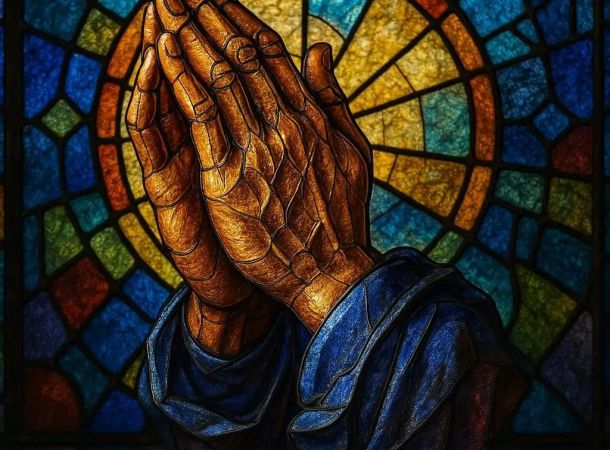Unfaithfulness
The next portion in Numbers we will learn from is called Naso, which means “count,” as it concludes the counting of the age-appropriate for battle, Israelite men. This parshat begins in Numbers 4:21 and ends in 7:89. It includes a curious divine revelation between a married couple when a man accuses his wife of infidelity. This ritual is called the Sotah. During a Sotah, a priest essentially writes a curse on a piece of parchment that includes the holy Name of God on it. He then scrapes the letters off into holy water, uncovers the woman’s hair, speaks the curse to her, and makes her drink the concoction while the woman waves an offering of jealousy. If her thigh sags and belly swells, then she is guilty and becomes a curse among the people. If her thigh does not bulge, she is blameless and produces offspring. Without a Temple, Sanhedrin, or priesthood, people do not practice any of the Israeli cultic rituals today. It’s interesting, though, how the Torah dedicates a chapter to a divine way of validating or invalidating jealousy when there are zero witnesses.
The end of the Torah portion describes a Nazir, meaning “separated” or “consecrated,” and is a person who is not born into the Levitical priesthood but takes upon himself an oath similar to that of a priest to be “holy to the Lord” by refraining from grape products (or wine), avoiding being in the presence of death, and not getting hair cuts. Some people lived a Nazirite lifestyle, like Samuel the prophet, and others took an oath for a specified time frame. Again, without a Temple, this practice is ancient because to end an oath, you had to go to a priest in the Temple with an offering.
A Nazir is someone who does not participate in the Temple service; they live like an outsider with a type of Hebrew dreadlocks yet commit themselves to the Holy One by abstaining from things that they perceive as interfering with a life of holiness. The scriptures also prescribe instructions to the priests to avoid contamination by contact with death. If they were to draw near the Holy One who is the God of life, they could not have the stench of death on them. There is no priestly restriction on wine, leading some Rabbis to believe that this was an extreme measure not necessary unless a person recognized they had a problem and was being proactive in developing self-discipline. In another place of scripture, drunkenness is an antithesis to being filled with the Holy Spirit or divine Breath (Eph 5.18). John the Baptist, also known as the Immerser, was from a Priestly heritage and a Nazirite prophet who prepared the way for Yeshua by being filled with the Holy Spirit and not intoxicated with wine. It took a Nazir, described in this Torah Portion, to prepare the way for Yeshua.
Luke 1:14-15: And you will have joy and gladness, and many will rejoice at his birth. He will be great before Adonai, and he should not drink wine and intoxicating beverage, but he will be filled with the Ruach ha-Kodesh just out of his mother’s womb.
The root word for the Sotah is shtut, defined as “folly,” “going astray,“ or “to be insane”. There is a connection between the woman’s hair involved in the Sotah and a Nazir’s hair, which is that the Torah uses the Hebrew word para for both accounts. In the Sotah, the woman’s hair is a testimony to her unfaithfulness, but with the Nazir, it is a testimony of their dedication to the Holy One. Proverbs 9 contrasts Lady Wisdom with Lady Folly. Folly comes from the same root word of shtut to explain how foolishness makes us stray from the path of life and leads us to death. Wisdom, however, is a voice that guides us to life. Does Proverbs 9 and this Torah portion describe two types of humans? One who God accuses of being foolish and unfaithful and one who dedicates themselves to wisdom and holiness.
We could say that God is the jealous husband, or more appropriately, zealous for His wife, the community of people who choose to pursue Him. He tests us with His word, which, when internalized, either produces good fruit or bitter waters of complaining, deceitfulness, and a sickly soul. If we want to be holy unto the Lord like a Nazir, we would be wise to take it upon ourselves to be self-disciplined and not be slaves to addiction of any kind. We should avoid things that are dead in the pursuit of thoughts, words, and actions that are life-giving. Remember that idolatry or worshiping other gods is spiritual adultery, which would be the enemy contained in this Torah Portion.
Exodus 34:14: (For you shall worship no other god, for the Lord, whose name is Jealous, is a jealous God).
Ezekiel 23:37: For they have committed adultery, and blood is on their hands. They have committed adultery with their idols and even sacrificed their sons whom they bore to Me, passing them through the fire to devour them.
Amid two stories describing possible unfaithfulness and a Nazirite’s commitment to walk intimately with the Holy One, we find heavenly resources contained in the Aaronic blessing that enable us to stay faithful.
Numbers 6:22-26: And the Lord spoke to Moses, saying: “Speak to Aaron and his sons, saying, ‘This is the way you shall bless the children of Israel. Say to them: The Lord bless you and keep you; The Lord make His face shine upon you, and be gracious to you; The Lord lift His countenance upon you, and give you peace.” ‘
Within this blessing is everything we need to walk and choose the path of life. May the Lord bless you, as in adore you, praise you, and congratulate you. We can find this type of adoration in Yeshua’s statement, “Well done, my good and faithful servant“ (Mt. 25.21). May the Lord keep you, guard you, give attention to you, closely observe, or protect you. We can find this type of care in Yeshua’s metaphor given in Luke 12:6-7.
“Aren’t five sparrows being sold for two pennies? Yet, not one of them is forgotten before God. Indeed, even the hairs of your head are all numbered. So do not fear; you are more valuable than many sparrows.”
May the Lord make His face shine upon you means may He show you mercy, grace, favor, consider you, and be inclined towards you. The verse that comes to mind when I think of this type of grace is Psalm 139:17-18:
“How precious also are Your thoughts to me, O God! How great is the sum of them! If I should count them, they would be more in number than the sand. When I awake, I am still with You.”
May the Lord lift His countenance toward you, which can be understood as to give respect to, honor, cause to rise, to be proud of us, to bear or carry us when needed. Instead of being disappointed in us, typically expressed with a downcast look, this blessing asks God to look upon us with love, admiration, empathy, and pride. Lifting His countenance towards us is a metaphor for enabling us, forgiving us when we make a mistake, and looking at us with kindness and gentleness.
Hebrews 4:15: For we do not have a kohen gadol (high priest) who is unable to sympathize with our weaknesses, but One who has been tempted in all the same ways—yet without sin. Therefore, let us draw near to the throne of grace with boldness so that we may receive mercy and find grace for help in time of need.
Finally, may the Lord grant you shalom, wholeness, peace, or fullness. May you be satisfied or lacking in nothing.
This blessing is the route to the way of life. It gives us the elements of being seen, heard, loved unconditionally, forgiven, uplifted, honored, cared for, protected, provided for, and adored. God meets every emotional, innate human need within this blessing. Our part is to be faithful and freely choose to walk a path of dedication, authenticity, honesty, and humility, which is the path of a Nazir who wants to live a life of “holiness unto the Lord”.




Leave a Reply